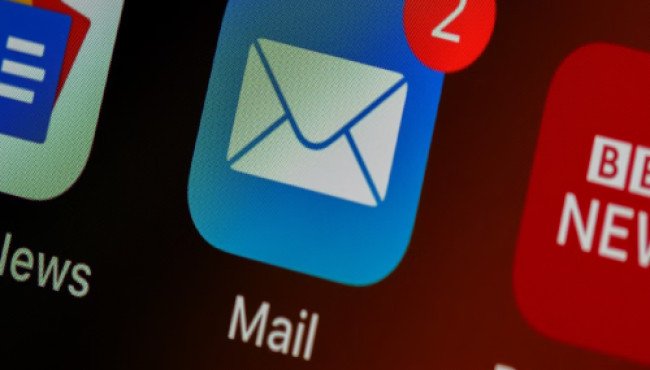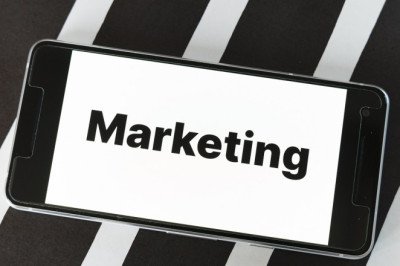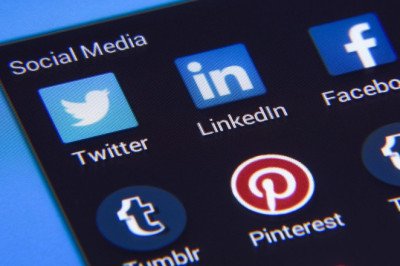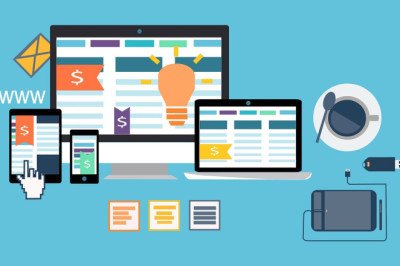views

attention. However, true and sustainable growth does not stem from mere hype or gimmicks. Instead, it arises from the ability to forge meaningful connections with your audience. People remain loyal to businesses that make them feel acknowledged, understood, and appreciated. This foundational principle is what drives customer retention and long-term success.
Real growth comes from connection. People stay loyal to the businesses that make them feel seen, understood, and valued. This emotional bond is crucial, as it fosters a sense of belonging and builds brand loyalty. When consumers feel like they are part of a community rather than just a transaction, they are more likely to return. Therefore, establishing a genuine connection should be the primary goal of any brand.
And that’s exactly where Email Marketing shines. It is not loud or trendy, but it is incredibly reliable, intimate, and surprisingly personal when executed correctly. Think of email marketing as engaging in a direct conversation with someone who has already expressed interest by opting in, essentially saying, “I’m interested, talk to me.” This kind of engagement is powerful and can lead to meaningful interactions that benefit both the brand and the consumer.
Consider email as a platform for having a direct conversation with individuals who have already indicated their interest. This interaction is not just about sending messages; it's about fostering a relationship. It's an opportunity to engage in dialogue, share insights, and build trust. When a subscriber opens your email, they are granting you a private moment to connect, free from the interference of algorithms that often dictate social media interactions. This direct line of communication is invaluable in today’s digital landscape.
Why Relationship-Focused Email Matters?
We all encounter a barrage of advertisements daily, but receiving a thoughtfully crafted message in your inbox is a refreshing experience that resonates differently. In a world overwhelmed by marketing noise, a personal touch can stand out and capture attention. When someone opens your email, it presents a unique opportunity to build trust without any algorithm acting as a barrier between you and your audience. This dynamic shift is essential in creating a relationship-focused email strategy, which prioritizes connection over mere promotion. By nurturing relationships, brands can foster a more engaged and loyal customer base.
However, this only works if you view email as a relationship tool rather than a megaphone for broadcasting messages. A strong, relationship-driven email strategy is instrumental in ensuring that your brand remains top-of-mind without becoming intrusive or annoying. By consistently delivering value and engaging content, you can build credibility and trust over time. This trust encourages repeat business and helps turn casual subscribers into passionate brand advocates who share their experiences with others. Therefore, the guiding principle should be clear: prioritize connection first, and sales will naturally follow.
A strong, relationship-driven email strategy helps you: Stay on people’s minds without being annoying. Build credibility by sharing value consistently. Encourage repeat customers. Turn subscribers into brand fans who talk about you. The rule is simple: connection first, sales second. Ironically, that mindset usually brings more sales anyway. By focusing on building authentic relationships, you create a loyal customer base that feels invested in your brand’s journey.
Understanding the Heart of Email Communication
Let’s simplify the concept of email marketing so it doesn’t sound like just another corporate buzzword. Email is a powerful tool used in business to create meaningful interactions with customers. It serves various purposes, such as greeting new customers warmly, much like a friendly welcome when someone enters your store. This personal touch sets the tone for future interactions and establishes a connection right from the start. In essence, email marketing is about fostering relationships through genuine communication.
Email is used in business to: Greet new customers as warmly as you would when someone enters your store. Educate them in small, friendly bites of information that are easy to digest. Share updates, stories, and helpful tips that keep your audience informed and engaged. Offer support or answers whenever needed, providing a sense of reliability and care. Introduce something new without pressure, allowing customers to explore at their own pace. Gently bring back individuals who may have drifted away from your brand, re-establishing connections that may have lapsed. This approach transforms email communication into a nurturing practice rather than a sales pitch.
Another way to think about it is that email is the digital version of checking in on someone, not for the sole purpose of pushing a sale, but to maintain a connection. This nurturing mentality allows brands to stay relevant and present in their customers' minds without overwhelming them with constant promotional messages. By engaging in this way, businesses can create a more personal relationship with their audience, fostering loyalty and trust. Ultimately, email should be seen as an opportunity for meaningful dialogue rather than just a transactional exchange.
The Basics of Email Campaigns Done Right
Before exploring advanced automation and segmentation techniques, it is essential to establish a solid foundation for your email campaigns. The basics of email campaigns are inherently human, revolving around understanding and empathy. Key elements include knowing who you're talking to and tailoring messages that resonate with their interests and needs. Sending messages that matter, showing up regularly, and speaking in a tone that feels personal are all critical aspects of effective email communication. Sharing genuine value before pitching anything is crucial for building trust and rapport.
Emails do not build relationships simply because they are perfectly formatted or visually appealing. They succeed because they feel genuine and relevant to the recipient. Authenticity is key; subscribers are more likely to engage when they sense that the communication is heartfelt and tailored to their unique experiences. You wouldn’t approach a stranger and loudly declare, “Buy my product!” This same principle applies to email marketing; it is vital to approach your audience with respect and understanding rather than overwhelming them with aggressive sales tactics.
Telling Stories That Resonate
Information can inform, but stories have the power to connect. If you want people to feel closer to your brand, it’s important to communicate in a relatable manner. Sharing specific moments from your journey humanizes your brand and allows your audience to see the people behind the product. Highlighting a customer’s success story can also illustrate the impact your brand has had on real lives, creating a sense of community. Additionally, discussing the “why” behind what you do deepens the connection, as it invites your audience to understand your values and motivations.
Talking about what you're learning, rather than only what you know, adds a layer of authenticity to your communication. It shows that you are on a journey just like your customers, making you more relatable. Story-driven emails encourage readers to think, “Hey, I relate to that,” fostering a sense of trust and belonging. Once this connection is established, it lays the groundwork for lasting relationships. Remember, email marketing isn’t about pushing messages; it's about nurturing conversations that resonate with your audience.
Personalization That Goes Beyond Names
While using someone's name in an email can grab attention, true personalization goes beyond that to involve delivering content that genuinely matters to the recipient. This can manifest in various ways, such as product suggestions based on previous behavior or preferences. Providing tips tailored to individual interests can significantly enhance engagement, making recipients feel valued and understood. Furthermore, offering different content depending on where they are in their customer journey ensures that the information is relevant and timely, increasing the likelihood of interaction.
Real personalization does not feel automated; it feels thoughtful and crafted specifically for the individual. Your subscribers should feel as though you wrote to them, addressing their specific needs and interests, rather than sending a generic message that could apply to anyone. This level of personalization fosters a deeper connection, encouraging recipients to engage with your content and brand. By focusing on what truly matters to your audience, you can create a stronger bond that transcends conventional marketing tactics.
Giving Value Before Asking for Anything
If your emails only arrive to announce offers, people may quickly lose interest and stop caring. Instead, consider what will genuinely assist and benefit your reader. This could include providing helpful tips that address common challenges, offering free tools that make their lives easier, or sharing real advice based on your experiences. Additionally, distributing guides or checklists that simplify complex processes can be incredibly valuable. Sharing industry insights in an easy-to-understand manner can also keep your audience informed and engaged.
When you consistently offer value, your audience becomes increasingly receptive to purchasing from you. This approach transforms the relationship from a transactional one to a more human connection, where your audience feels appreciated and recognized. People tend to reward brands that treat them like individuals with real needs and not just as potential sales numbers. By prioritizing value and assistance, you can cultivate a loyal customer base that is more likely to return for future purchases.
Encouraging Two-Way Conversations
Many businesses overlook an essential component of communication: people genuinely enjoy being asked for their opinions. Consider incorporating questions in your emails that invite responses, such as, “What’s the biggest struggle you're facing right now?” or “Have you tried this approach before?” These simple inquiries can foster a sense of involvement and engagement, encouraging your audience to share their thoughts. Even a short reply can strengthen the connection between you and your subscribers, providing you with invaluable insights into what your audience truly wants.
Encouraging dialogue rather than delivering monologues is key to enhancing your email marketing efforts. Talking with people beats simply talking to them every time, as it builds rapport and trust. By creating an environment where your audience feels comfortable sharing their thoughts, you can gain deeper insights into their preferences and needs. This two-way communication enriches the relationship and enables you to tailor your messaging further, making it even more relevant and engaging.
Establishing Trust Through Consistency
You don’t need to flood your audience’s inbox with daily emails. However, disappearing for months and only showing up when you have something to sell can severely damage trust. Aim for a frequency that you can maintain consistently; weekly emails work well for most brands. Consistency isn’t merely about sending more emails; it’s about demonstrating to your audience that they can rely on you for regular communication and engagement. This dependable presence helps to solidify your brand’s reputation and fosters trust over time.
Being consistent in your email marketing efforts means not only delivering content on a regular basis but also ensuring that the content is valuable and engaging. Your audience should feel that they can count on you for insights, updates, and offers that genuinely matter to them. This reliability enhances your brand's integrity and establishes a foundation of trust that is essential for cultivating long-term relationships with your audience. By maintaining this consistency, you position your brand as a trustworthy resource in your industry.
Conclusion: Prioritizing Connection Over Sales
If you want your email list to become a long-term asset, the approach should be straightforward and uncomplicated. Begin by consistently showing up with value in every communication. Share engaging stories instead of merely shouting offers, creating a narrative that draws your audience in. Cultivate curiosity about your audience by asking questions and seeking feedback, which can help you understand their needs better. Finally, ensure that your communication is consistent, treating every subscriber like a person rather than just a lead.
By following these principles, your inbox can evolve into a space where trust flourishes. Over time, this trust can translate into repeat business, referrals, and a community that grows alongside your brand. Email marketing is not a mere trick or tactic; it is a dedicated practice focused on building relationships. Similar to any meaningful relationship, it thrives on patience, honesty, and genuine care for your audience.











